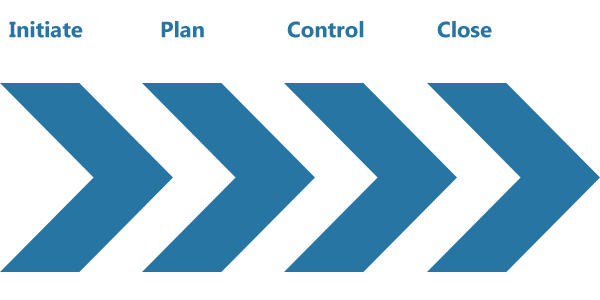The role of the PMO in strategy execution
The role of the Program Management Office (PMO) is coming under increased scrutiny from a number of perspectives. Gartner have identified the Enterprise Program Management Office (EPMO) as a response to the business need for control over execution. Forrester, together with the Project Management Institute have recently written about the role of “Strategic” PMOs. In this post, we’ll provide an i-nexus perspective on the issue.
It’s accurate to say that PMOs have typically focused on the tactical activities that support project implementation. Ownership has largely resided in IT and the focus has been on IT projects. These range of very large projects carrying substantial risk (an ERP implementation) to much smaller projects. While project overrun on both budget and time are perennial issues, Forrester identify that market competition is increasingly forcing stronger disciplines. Their view is that one of the key outcomes of a strategic PMO is the ability for that organisation to deliver a consistent set of outcomes. Importantly, they acknowledge that a big part of this consistency is in standard performance indicators enabling a common framework for communicating progress and the need for action.
 At i-nexus, we view this as a critical point. Strategy execution is not just about being able to deliver on the espoused strategic plan. Real execution is more about the development and maintenance of an execution capability. This is one of the reasons we feel that those organisations that have successfully introduced “lean” have a substantial competitive advantage. Execution capability is partly influenced by resource constraints, but more influenced by mindset constraints. Unless team members have the ability to identify and solve problems, to willingly take ownership for initiating improvements, proactively generate innovative ideas and find ways to get at least some of these implemented, any business will struggle to execute. All of this implies a more subtle role for the PMO. Successful PMOs will need to blend project disciplines with innovation management and culture change if they are to succeed.
At i-nexus, we view this as a critical point. Strategy execution is not just about being able to deliver on the espoused strategic plan. Real execution is more about the development and maintenance of an execution capability. This is one of the reasons we feel that those organisations that have successfully introduced “lean” have a substantial competitive advantage. Execution capability is partly influenced by resource constraints, but more influenced by mindset constraints. Unless team members have the ability to identify and solve problems, to willingly take ownership for initiating improvements, proactively generate innovative ideas and find ways to get at least some of these implemented, any business will struggle to execute. All of this implies a more subtle role for the PMO. Successful PMOs will need to blend project disciplines with innovation management and culture change if they are to succeed.
In many ways, the emerging debate and focus on strategy execution provides the final rationale for the “empowerment” movement driving HR thinking 10 – 15 years ago. In those days, the rationale was that this was the right thing to do. The real benefit though is more fundamental. Without execution capability throughout an organisation, the leadership team has no vehicle for achieving their objectives.

Excellent article. Great insights!
I totally agree with every single word!!! a good one.